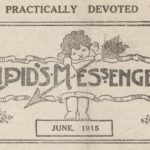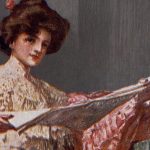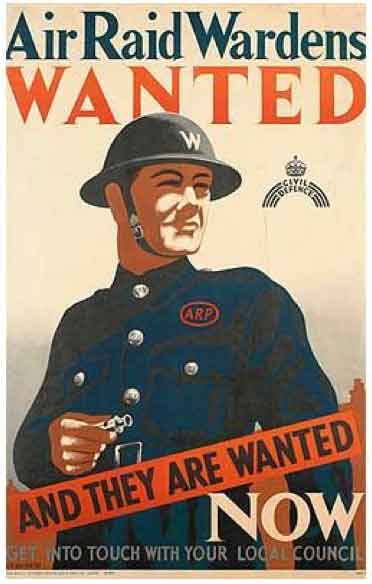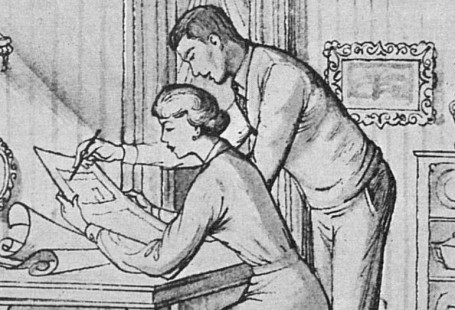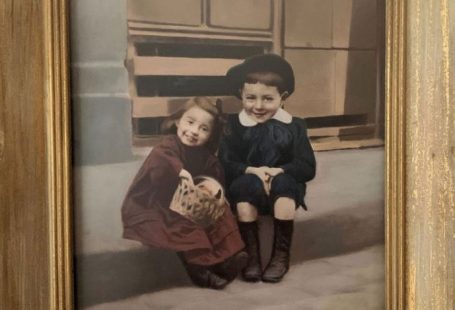Described at the time in the pages of the Western Mail as ‘one of the most sensational events in the criminal annals of England,’ the arrest and prosecution of Oscar Wilde on charges of ‘gross indecency’ is a tragic chapter in LGBTQ history, and represents the wider persecution faced by the LGBTQ community at the time, as well as throughout the ensuing decades.
Oscar Wilde | Illustrated London News | 27 February 1892
In this special blog, we will explore how newspapers at the time reported on the arrest of Oscar Wilde, his trial and eventual imprisonment.
Register now and explore The Archive
The Libel Case – Wilde versus Queensberry
On 18 February 1895, Oscar Wilde received a note at his club, the Albermarle, from the Marquess of Queensberry. The Marquess of Queensberry was the father of Wilde’s lover, Lord Alfred Douglas, an outspoken Scottish nobleman with a passion for boxing. The note read: ‘For Oscar Wilde, posing as a sodomite.’
Tip: Newspapers at the time would censor particular words deemed unsavoury, so you will find redacted renderings of the Marquess of Queensberry’s note in our Archive.
Now, Wilde could have let this slur remain unanswered, but against the advice of his friends, he decided to sue Queensberry for slander, and criminal charges were brought against the Scottish peer. The case went to court, Queensberry freely admitted the slander, whilst his lawyers brought in evidence of Wilde’s homosexual activity.
We move now to 6 April 1895, when the Western Mail reported on the outcome of the libel trial. The tone of the newspaper is evidently mocking, as the article records how ‘the Marquess of Queesnberry is placed in the dock on the charge of uttering an odious slander besmudging the dainty fame of Mr Oscar Wilde.’
The Marquess of Queensberry in the dock | Western Mail | 6 April 1895
The Western Mail goes on to report that the Marquess of Queensberry had been ‘absolutely unflinching through the proceedings. He admitted the libel and pleaded justification.’ And, in a staggering twist, the prosecution withdrew, under instructions from Oscar Wilde himself. That meant that ‘legally…the libel stands as true and its publication justified.’ The judge instructed the jury to find a not guilty verdict, which they promptly gave ‘without leaving the box.’
The Leeds Mercury describes how ‘The verdict was received with applause…and becoming known in the streets, there was a demonstration of approval on the part of a large crowd.’ Queensberry himself received ‘the congratulations of his friends’ at the court, and further applause.
Oscar Wilde in court | Western Mail | 6 April 1895
But what had driven Wilde to withdraw from prosecuting Queensberry, in what was basically an admission of his sexuality, forbidden at that time under British law? The Western Mail professes to have an answer, publishing a letter reputedly sent by the writer to the London Evening News:
It would be impossible for me to prove my case without putting Lord Alfred Douglas in the witness-box against his father. Lord Alfred Douglas was extremely anxious to go into the box, but I would not let him do so. Rather than put him in so painful a position I determined to retire from the case and to bear on my own shoulders whatever ignominy and shame might result from my prosecution.
Wilde’s words – considering the ‘ignominy and shame’ he might face in dropping the charges – would soon come back to haunt him, as the case took on a shocking turn.
Rumours of the Most Remarkable Character
Soon after the end of the libel trial, the Western Mail records how ‘for some hours London and the whole country was thrown into a turmoil by rumours of the most the most remarkable character.’ For it soon became known that the Public Prosecutor had issued a warrant for Wilde’s arrest.
The whole country, it seems, was put on the alert, the Leeds Mercury containing the following report:
All the railway stations from which trains were to leave last night in connection with steamers for foreign ports were being watched by detectives, and Wilde’s description was sent by telegraph to the chiefs of police in British ports, with urgent requests that he might be arrested at sight.
Meanwhile the Marquess of Queesnberry did not mince his words, sending this message to Wilde: ‘If the country allows you to leave all the better for the country, but if you take my son with you I will follow you wherever you go, and shoot you.’
Illustrated Police News | 20 April 1895
But contrary to the rumours, Wilde had not fled, nor even attempted to do so. He was arrested ‘shortly after seven o’clock,’ according to the Leeds Mercury, at the Cadogan Hotel, Sloane Street. The Western Mail describes how Wilde was ‘somewhat surprised’ when the warrant was read to him, charged with ‘committing acts of gross indecency with certain male persons.’
He was taken to Bow Street, where Lord Alfred Douglas visited ‘to inquire as to the possibility of the accused being bailed out.’ Bail for Wilde was not possible, and Douglas ‘appeared much distressed.’
Odious Charges
On 13 April 1895, the Cardiff Times reported that ‘The Apostle of Culture,’ namely Oscar Wilde, was facing ‘odious charges.’ The hearing, to be held at Bow Street, caused something of a pandemonium, due to notoriety of both the alleged crime and its famous perpetrator. The Cardiff Times describes how:
After a few minutes’ delay it was intended that the case would be taken in the Extradition Court upstairs. Thereupon there was wild rush for this part of the building on the part of the public, who had by this time got within the gates. The small court was thronged to its fullest capacity by an assemblage of well-dressed men. Only one woman was present, and, seated immediately behind the dock, was the object of a great deal of attention.
A key thread to the prosecution’s case was Alfred Taylor, who, according to the Cardiff Times ‘was a man most closely connected with the prisoner Wilde…and that he was engaged in acting for Wilde in procuring those with whom he should afterwards commit acts of gross indecency.’
Illustrated Police News | 20 April 1895
One of the key prosecution witnesses brought to the stand was Charles Parker, who was one of the young men Taylor had introduced to Wilde. Parker testified that upon meeting Wilde, Wilde had declared that he was ‘the boy for me,’ and the two went to the Savoy Hotel.
Arriving there about 10 o’clock they proceeded to the second or third floor and went to a sitting-room. No one was there but witness, and Wilde ordered whisky and soda, and two were brought. After the waiter had gone Wilde said, ‘Come into my bedroom.’ There was a door leading into a bedroom. They both went into the bedroom where acts of indecency took place.
Despite this evidence from the prosecution, the jury were unable to reach a verdict and Wilde was bailed, under surety from one Reverend Stewart Headlam. The East & South Devon Advertiser carries a statement from Headlam, who describes why he had decided to stand as surety for Wilde:
I have undertaken this responsibility on public grounds. I felt that the public mind had been prejudiced before the case begun, and I was anxious to give Mr Wilde any help I could to enable him to stand his trial in good health and spirits.
The East & South Devon Advertiser describes Wilde’s release, and how he was ‘dressed, as usual, with scrupulous care.’ Dressed in a dark frock-coat and a silk hat, he ‘walked, erect and self-possessed, with all the old air of being superior to, and untouched by, circumstances.’
‘Oscar Wilde Secretly Released from Prison at Night Time’ | Illustrated London News | 29 May 1897
But this attitude was not something even Wilde could maintain. By the ending of his second trial, he was appearing ‘ill and anxious,’ according to the Boston Guardian.
Placed before the jury where letters between Wilde and Douglas, which referred to ‘rose leaf lips and the madness of kissing.’ The defence tried to position this a ‘prose poem which [the jury] could not appreciate,’ something the prosecution rigorously contested. After ‘rather more than two hours’ the jury returned with their verdict – ‘guilty upon each of the eight counts of the indictment.’
The judge’s summing up was a brutal one, as according to the Boston Guardian he wished to impose a harsher punishment upon Wilde and Taylor:
Addressing the prisoners, His Lordship said the case was both the most painful and the worst of its kind which had ever come before him, and he had not a shadow of a doubt that the verdict the jury had arrived at was a right one. It would be of no use for him to address them upon the wickedness of their behaviour, because people who could commit the offences which had been brought home to them must be dead to any sense of shame, and one could not hope to make any impression upon them. They had been convicted of the most hideous crimes, and he should not be doing his duty unless he passed upon them the severest sentence which the law permitted, which was one of two years’ hard labour. That was the sentence he passed upon each, and he felt that it was totally inadequate.
Wilde must have had some supporters left, however, as the judge’s verdict was met with ‘hisses’ in the gallery. But that could not stop his sentence being served, and he was taken initially to Pentonville Prison, thence to Wandsworth, and finally to Reading Gaol.
Oscar Wilde As He Is Today
Imprisonment was not the final trial faced by Oscar Wilde, throughout which he suffered from ill health. In November 1895 he was back in court, this time the London Bankruptcy Court. His liabilities were estimated at £3,591 9s 6d, with no ‘available assets,’ according to the Westminster Gazette.
Edinburgh Evening News | 14 November 1895
Meanwhile, the Edinburgh Evening News published a pitiful sketch, which had been published in the London Star newpspaer. ‘Pale and haggard,’ Wilde looked a ‘mere shadow of his former self,’ and worse, like ‘an invalid who has just left a sick bed.’
And more suffering was in store for Wilde. Although he was released just over two years later, on 19 May 1897, his health was fatally weakened and he died, in exile, in Paris three years later.
Illustrated Police News | 20 April 1895
The tragedy of the Wilde case perhaps lies in how it was avoidable – Wilde did not, ultimately, have to take Queensberry to court, and once he did, his lifestyle and his sexuality where put under the microscope of public opinion, ridiculed and discussed in the pages of contemporary newspapers, as can be found on our Archive. Once he stepped into the court, Wilde had no chance. He was different, an outsider, the ‘Apostle of Aestheticism’ which conservative Victorian morality had, for some time, no doubt wanted to put behind bars.












